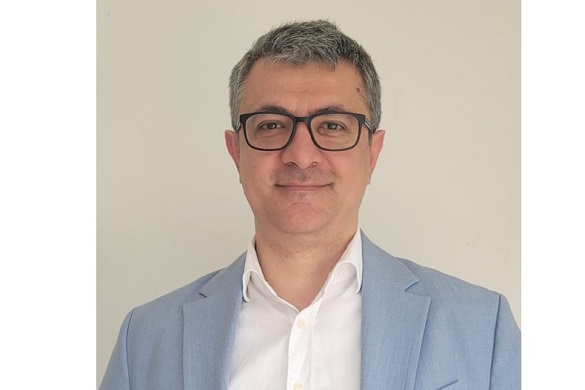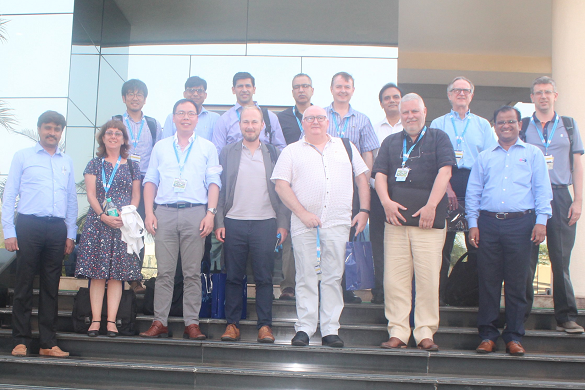University of Liverpool’s Double Success at Royal Society of Chemistry Awards
University of Liverpool researchers are celebrating a double success as they receive two prestigious awards from the Royal Society of Chemistry.
RSC Tilden Prize
Professor Alessandro Troisi, from the Department of Chemistry and the Materials Innovation Factory, is the recipient of the Royal Society of Chemistry’s Tilden Prize awarded in recognition of brilliance in research and innovation.
Professor Troisi won the prize for the development of theoretical methods to explain and predict the electronic and optical properties of organic materials.
The focus of Professor Troisi’s research is to aid the process of discovering new materials by providing reliable predictions about the electronic and optical properties of organic materials. To do this, he uses theoretical methods from physical chemistry, high-performance computing and, increasingly, machine learning.

Professor Alessandro Troisi
Professor Troisi said: “To survive our emotionally demanding job as scientists, we forget very quickly the failures and, surprisingly, also the successes. I feel, however, that this award is different. Weeks after hearing the news, I am still delighted about it, and I can’t thank the RSC enough.”
Professor Troisi receives £5000 and a medal.
RSC Horizon Prize
A collaborative research team that discovered the anti-Wolbachia (A∙WOL) drug, led by University of Liverpool medicinal chemist Professor Paul O’Neill, has been awaarded the Royal Society of Chemistry’s Horizon Prize, which celebrates discoveries and innovations that push the boundaries of science.
The A∙WOL antifilarial drug discovery team is a collaboration between researchers from the University of Liverpool, Liverpool School of Tropical Medicine, Imperial College London, University of Bonn and industrial partners from Astra Zeneca and Eisai Ltd.

The A∙WOL antifilarial drug discovery team
The team received the prize for the discovery of fast-acting, highly specific anti-Wolbachia candidates for the oral treatment of human filariasis.
They will receive a trophy and a video showcasing their work, and each team member receives a certificate.
Lymphatic filariasis (elephantiasis) and onchocerciasis (river blindness) cause severe disability and affect more than 117 million people globally, ranking them as one of the leading causes of global morbidity. These two neglected tropical diseases (NTDs) are caused by long-lived (10–14 years) parasitic nematodes (roundworms).
The filarial worms rely on a special type of bacteria, Wolbachia. The Liverpool team was the first to show that targeting Wolbachia with the antibiotic doxycycline leads to the permanent sterilisation of adult female parasites and the gradual death of the adult worm.
The team’s collaborative drug discovery research has led to the first synthetic drug candidate, AZ1066.
This drug aims to offer a shorter treatment compared to current options and entered clinical trials in 2022. They have also identified several promising starting points for new medications and is working with Astra Zeneca to understand how these new chemical classes can eliminate Wolbachia within the worms.
Professor Paul O’Neill said: “We are delighted to receive this award for our collaborative research, which has allowed us to discover a first-in-class synthetic Anti-Wolbachia (AWOL) drug candidate against filarial diseases and a portfolio of distinctive fast-acting lead molecules for further chemical optimisation.”
The Royal Society of Chemistry’s prizes have recognised excellence in the chemical sciences for more than 150 years.
This year’s recipients join a prestigious list of past winners in the RSC’s prize portfolio, 60 of whom have gone on to win Nobel Prizes for their work, including 2022 Nobel laureate Carolyn Bertozzi and 2019 Nobel laureate John B Goodenough.

